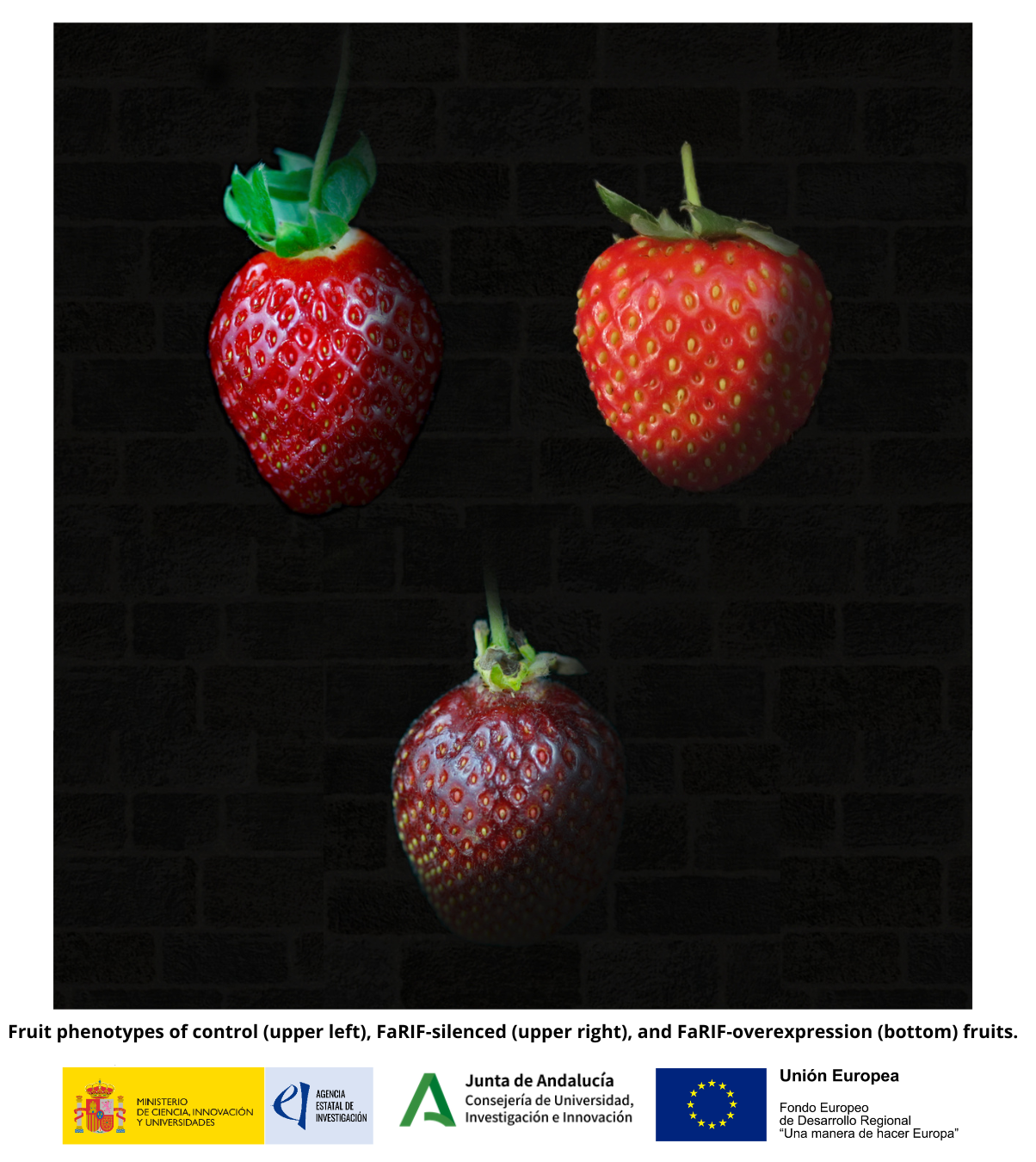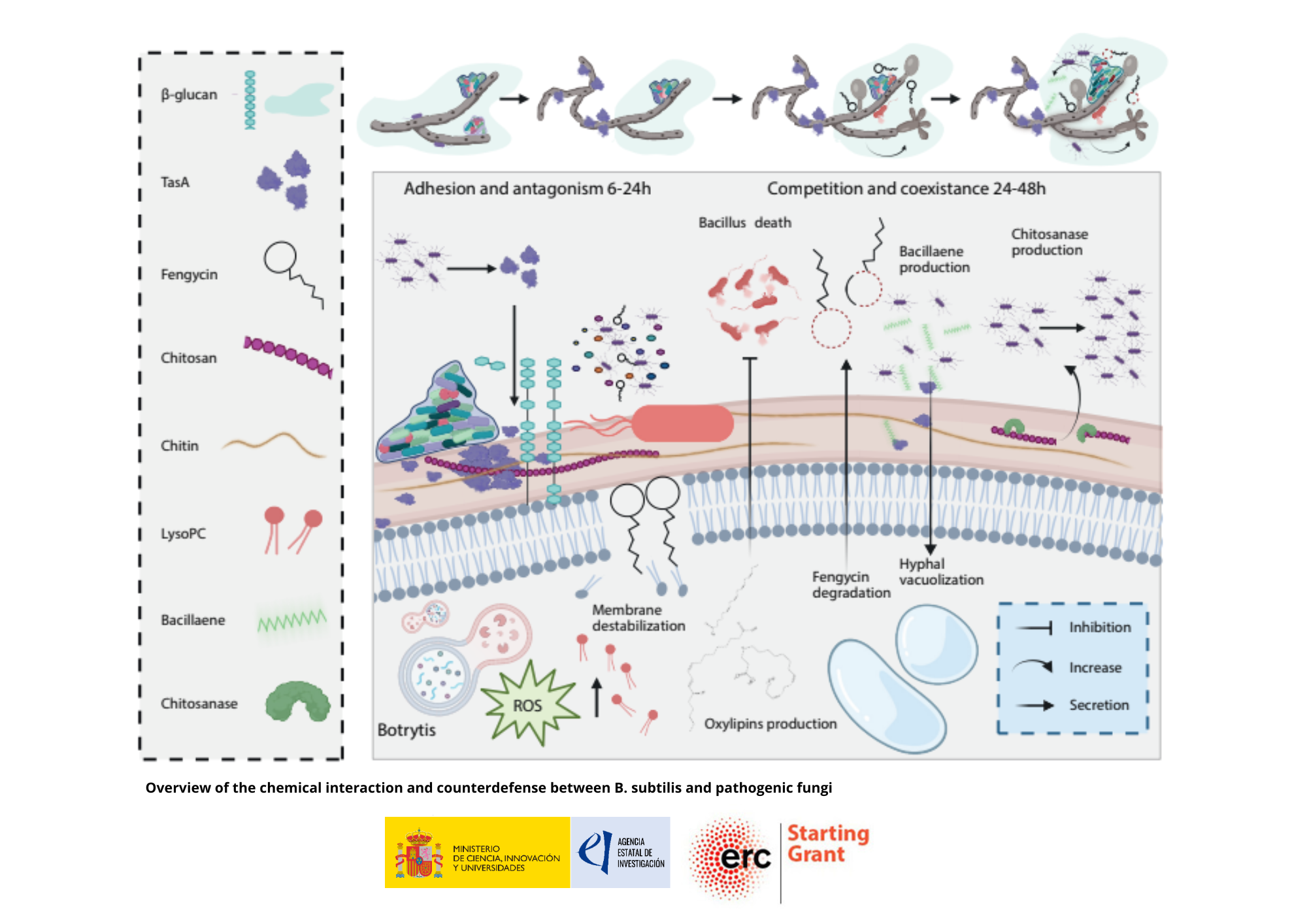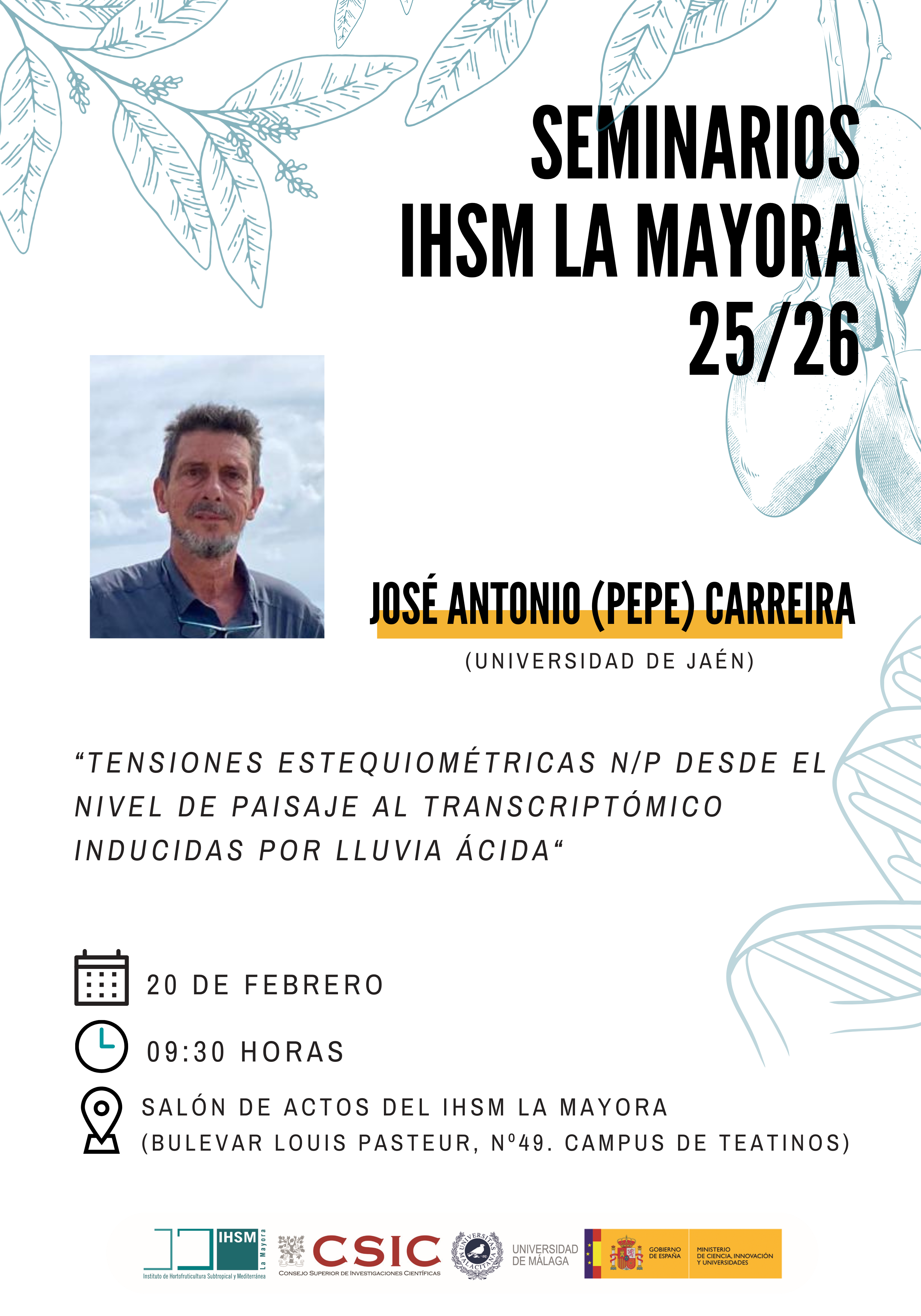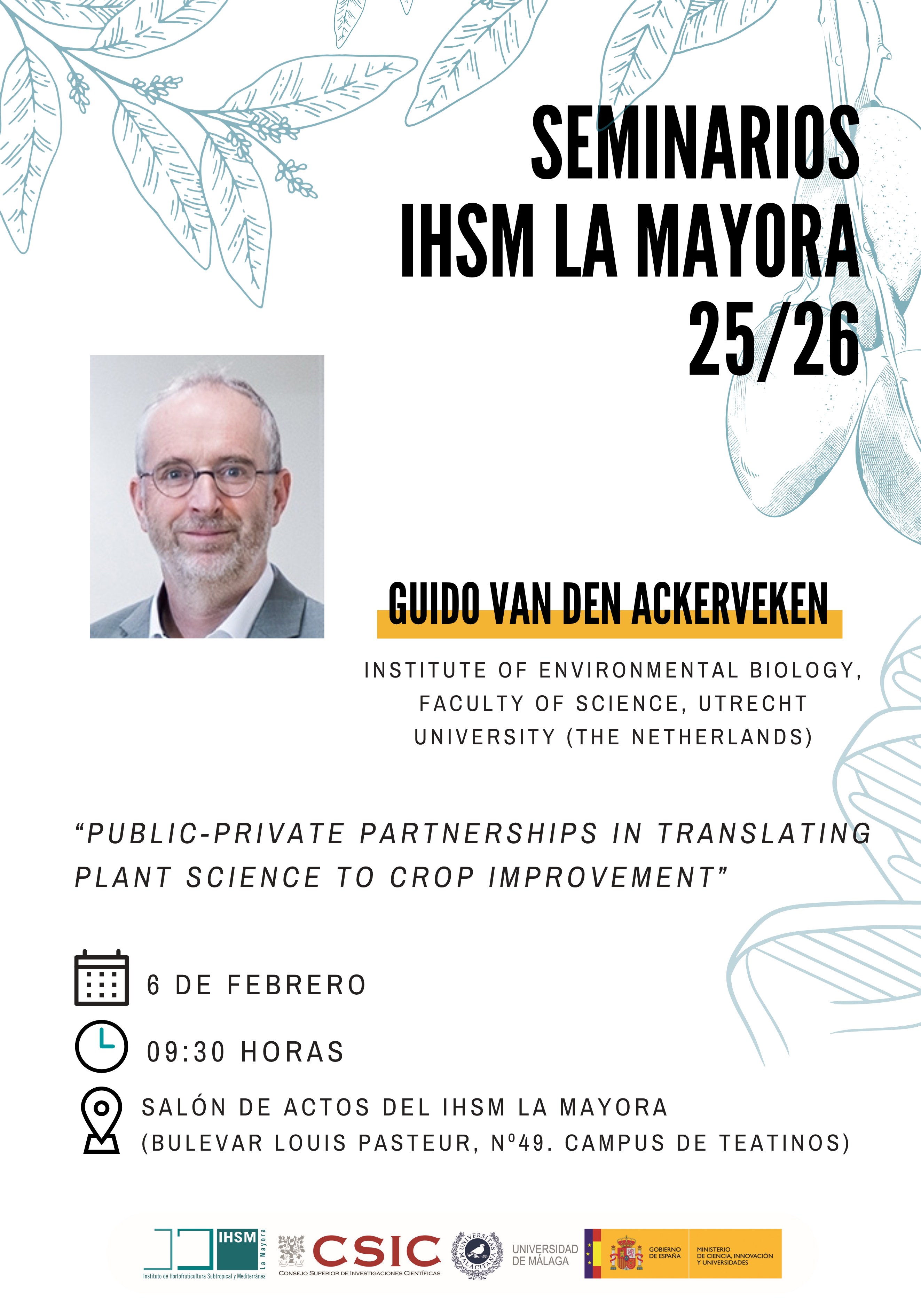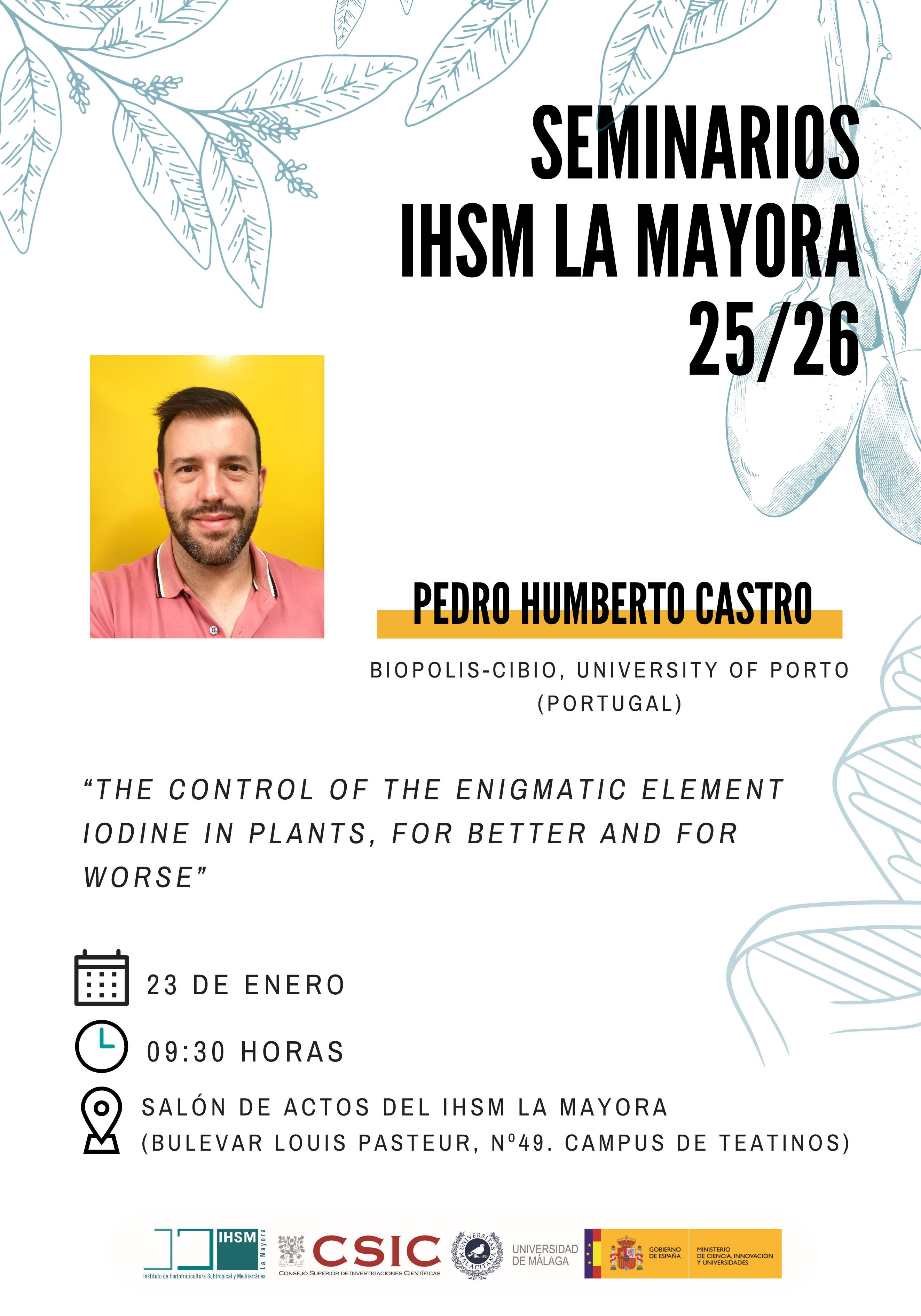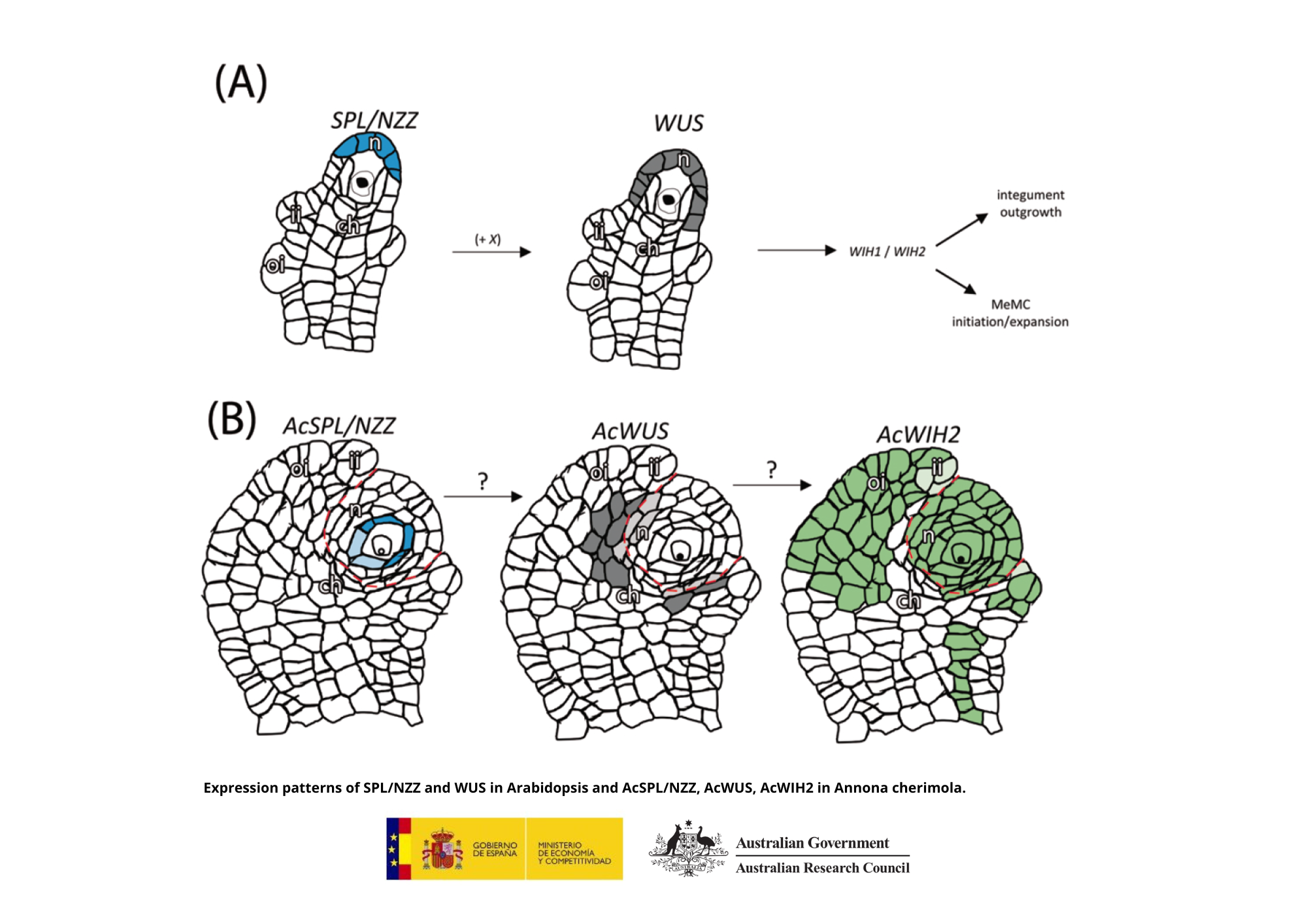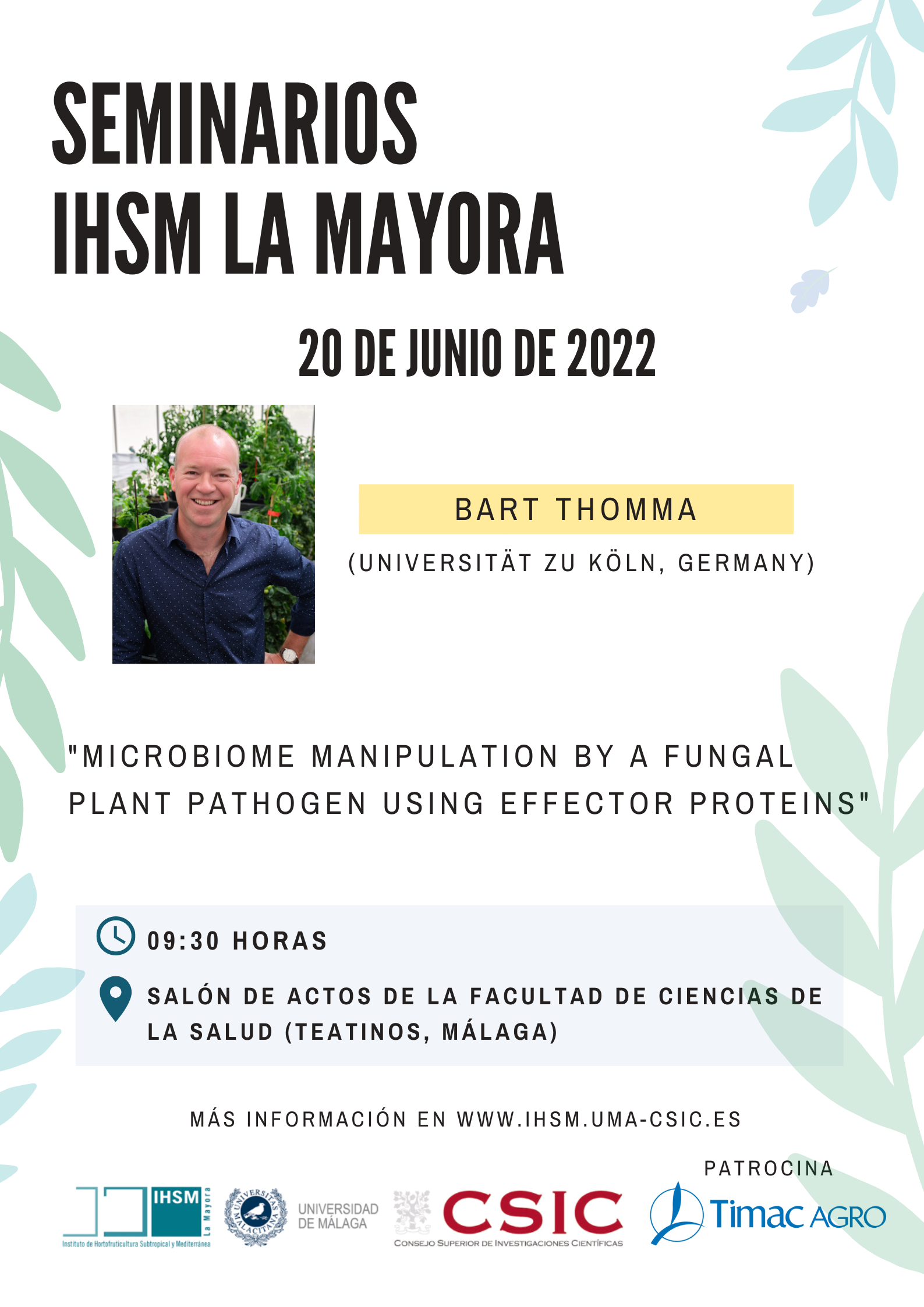
Seminarios IHSM La Mayora - Bart Thomma (Universität zu Köln, Germany)
Microbiome manipulation by a fungal plant pathogen using effector proteins Bart Thomma, Cluster of Excellence on Plant Sciences (CEPLAS), Institute for Plant Sciences, University of Cologne, Cologne, Germany Beneficial plant-associated microbes are found in and on all organs of the plant and help to mitigate (a)biotic stresses. Plants are able to shape their microbiota and specifically attract beneficial microbes to suppress pathogens. Hence, the plant’s microbiome can be considered an inherent, exogenous layer that complements its endogenous innate immune system. Microbes typically secrete a plethora of molecules into their environment to promote niche colonization. Especially soil-dwelling microbes are well-known producers of antimicrobials that are exploited to outcompete microbial co-inhabitants in the soil. Also plant pathogenic microbes secrete a diversity of molecules into their environment for niche establishment. Upon plant colonization, microbial pathogens secrete so-called effector proteins that promote disease development. While such effectors are typically considered to exclusively act through direct host manipulation, for instance through the suppression of host immune responses, we recently reported that the soil-borne fungal xylem-colonizing vascular wilt pathogen Verticillium dahliae exploits effector proteins with antibacterial properties to promote host colonization through the manipulation of beneficial host microbiota. Deeper analysis now reveals that V. dahliae has devoted part of its effector catalog to microbiota manipulation, through selective activities and life-stage dependent exploitation of particular effector proteins. Short biography: After studying Plant Pathology at Wageningen University in the Netherland, Bart Thomma received a PhD from the Katholieke Universiteit Leuven in Belgium on immune signaling pathways in Arabidopsis for a thesis describing that, besides salicylic acid, also jasmonate and ethylene play major roles in defence against pathogens. From 2003 onwards he has established a career at Wageningen University in The Netherlands, starting as postdoc, through assistant and associate professor to become full professor and head of department in 2013. This is where he started to develop his work on the vascular wilt pathogen Verticillium dahliae. In 2020, Bart Thomma was awarded a Humboldt professorship to become professor of Evolutionary Microbiology at the University of Cologne in Germany and at the “Centre of Excellence on Plant Science” (CEPLAS), where he moved his research group. Bart Thomma received the first RKS Wood Prize, awarded by the British Society for Plant Pathology, and acts as section editor for the journal PLoS Pathogens and as co-editor-in-chief of FEMS Microbiology Reviews.

